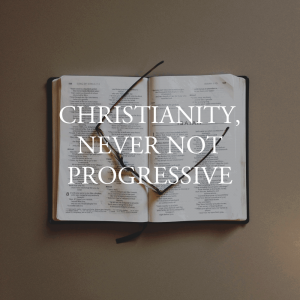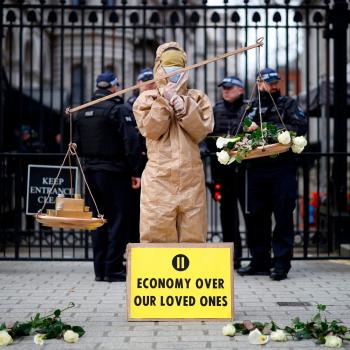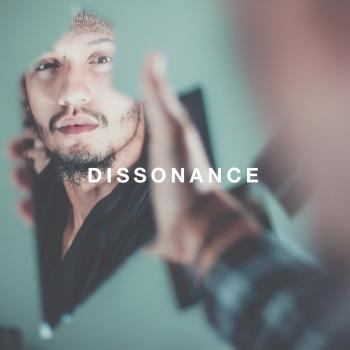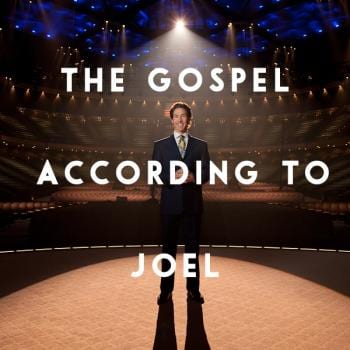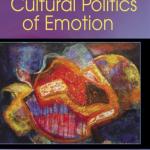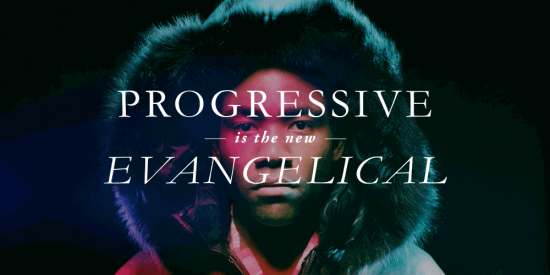
I’ve been calling myself a “progressive” but lately I’ve come to dislike being referred to as a progressive just as much as I dislike being referred to as an evangelical [1]. It’s weird to think that there was a point in time that being an evangelical was once the “progressive” thing to do. They, for their time, revolutionized how we did Church. The evangelical questioned biblical inerrancy, they preached an ecumenical means of salvation, they essentially re-contextualized the gospel in order that it becomes relevant for their audience.
But, as you know the term “Evangelical” is now one of the most infamously ambiguous religious labels. Having been unfortunately robbed by televangelists, such as Jerry Falwell, Pat Robertson, and Focus on the Families James Dobson, leveraging this label to politicize a nation. The label evangelical then became conflated and polluted by the “moral-majority” propagating an agenda, building a westernized socio-political version of “The Promised Land.” The asterisk on evangelical came with a narrow-minded, white-only, dogmatic baggage and it worked at least for that time.
Fast forward a couple decades and well, the 90’s are over, Baby Boomers are retiring, our economy has since been shifting, and the color of our nation is diversifying. As circumstances are changing, culture is dramatically shifting.
Enter progressivism.
It would seem logical to first ask what is progressivism before we locate who those are that make up this progressivism, but in light of being intellectually duplicitous, I see it as more productive by locating and only then, by defining.
I say this because progressivism is more of a group of people than it is a solidified set of beliefs. Mainly because progressivism is amorphous, much like evangelicalism, refusing to be defined or rather confined by any solidified definition. The root of this word “progress” is in and of itself a word dependent on the fluidity of culture.
Where culture is progression goes ahead of.
Which is why I say that not until we recognize who will we then gain the ability to articulate the what.
Who?
Groups and communities, that did not previously, but currently make up large sects of people: LGBT, many [but of course not all] women, the stigmatized “minority” who is the soon to be the majority. These groups of people are the exiled, the nomadic, and the marginalized, but more specifically they are “the progressives,” the future if you will. The church chewed them up and spit them out, and then proceeded to walk all over us. Though there is a sense of forgiveness this is not to be mistaken by an ignorance, we’ve forgiven but we’re not returning.
People have slowly but steadily caught on to the fact that what the Church is teaching, preaching, and living is not just a sham but it’s irrelevant. I concur with John Dickerson in that, “The more that evangelicals attempt to correct course, the more they splinter their movement [2].” Socially, economically, culturally, and therefore politically there is a very different perspective in which enables the progressive to put more emphasis on a God of redemption and liberation as opposed to one of oppression (Galatians 5:1). This doctrine has become more of a means of scapegoating one’s felt guilt, all the while allowing them to feel morally superior to everyone else.
Their words have lost power, their gospel is irrelevant, and their bible is no longer credible. We’re seeing this reflected as their congregations are losing numbers, their bank accounts are dwindling, and yes mega churches are growing, but this US version of christendom is, over all, shrinking.
As a result, we’re witnessing not only a collapse in the US Church but more of a mass exodus from the US church as progressives seem to decontextualize as opposed to, as their evangelical predecessors, re-contextualize. They are ridding themselves of the gospel and Christianity as being primary de facto to their present life.
We see this reflected as “the nones” are the fastest growing religious cohort in the US. While one out of four millennials and one out of five US residents claim “no affiliation.” Simultaneously [the progressive is] rejecting a past religiosity while still acknowledging a sense of their personal spirituality.
In consequence of this, but not solely confined to this, the progressive has developed her own epistemological awareness that is disconnected from their parent’s narrow-minded theological perspective.
To be frank, there is a large sect of the US no longer blindly buying into an inane logic that is claiming an unconditionally loving God while simultaneously propagating a hatefully oppressive law.
This mass exodus is not simply threatening the stability of evangelicalism, but the very life of Christianity. Culturally this cataclysmic shift, aforementioned, is changing not just how we operate ecclesiological-ly but what we believe theologically. The evangelical re-contextualized the gospel but it seems that our nation, unlike evangelicals, are completely ridding of the gospel.
Progressivism is leaving the old behind while embracing, creating, and [re]forming the new which is to come but has yet to fully arrive. But to be clear, progressivism will inevitably replace evangelicalism, they are in no way alike but rather in every way conflicting opposites.
Is progressivism the new evangelicalism? No, rather it’s the final stop for Christianity. The church’s future in the US is already seen in England.

